Keywords: Mining
There are more than 200 results, only the first 200 are displayed here.
-

RELIGION
- Frank Brennan
- 03 December 2015
The consideration of medico-legal problems in the public square of a pluralistic democratic society keeping pace with profound technological change is often marked by simplistic assertions, precluding considerations of comprehensive world views, whether religious or philosophical. It is now commonplace for doctors to be told to leave their consciences at the door, as their patients are consumers and they are suppliers and of course the market decides. Debates about law and policy are often resolved with simplistic assertions about individual rights and autonomy, with little consideration for the public interest, the common good, and the doctor-patient relationship. Even conscience is said to be a matter for contracting out. This evening I ask whether there are more compelling ways to resolve medico-legal dilemmas, while conceding a limited role for law in determining the range of acceptable answers.
READ MORE
-
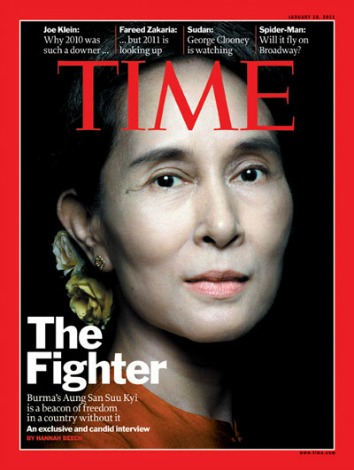
INTERNATIONAL
- Amal Aung Zaw
- 13 November 2015
5 Comments
The results resonate beyond the shores of Myanmar. The manner in which a fragile woman with the power of empty hands wrought a miracle, melting decades of totalitarian dominance, is the stuff of history. The world savours this moment as its own. This is the Gandhi moment, the Mandela moment of the 21st Century. In an era of ISIL killings and chronic violent wars in the middle east for 'democracy', a woman from the east has once again affirmed the moral superiority of non violence.
READ MORE 
-
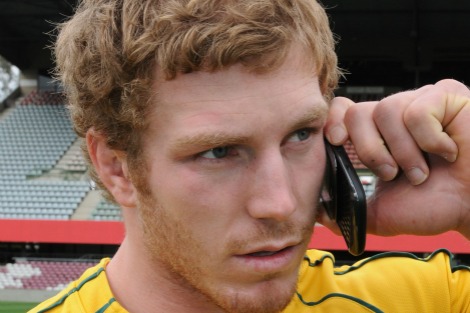
AUSTRALIA
- Andrew Hamilton
- 05 November 2015
10 Comments
What are spectators to make of Adam Goodes' challenge to racial prejudice? What are they to make of David Pocock's outspoken defence of the environment and criticism of coal mining, or of his and his partner's refusal to marry in solidarity with LBGT couples? They make space for us to reflect on our own response to large human questions. But that space also invites us to judge our own integrity. The opprobrium such role models meet may arise out of discomfort with unwelcome self-questioning.
READ MORE 
-
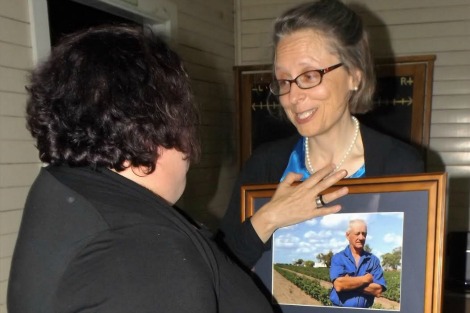
ENVIRONMENT
- Mark Copland
- 02 November 2015
10 Comments
When Chinchilla farmer George Bender took his own life, it ended a ten year struggle with the coal seam gas industry that has wreaked havoc on his property and that of his neighbours. Despite mountains of paper regulations, despite a well-resourced Gasfield Commission and Gasfield Compliance Unit, people in the region feel abandoned. It seems that government bodies are enablers and facilitators of the industry rather than regulators and protectors of the people, the soil and the water.
READ MORE 
-

AUSTRALIA
- Frank Brennan
- 23 October 2015
4 Comments
Francis knows there are all sorts of issues inside and outside the Church where for too long people with power have tried to keep the lid on, in the hope that the problems and complexities will go away, often by parodying those who see the problems or complexities as small 'l' liberals or cafeteria Catholics. He delights in being joyful and troubled while contemplating big problems, calling people of good will to the table of deliberation reminding them of the kernel of the Christian gospels. He has the faith and hope needed to lift the lid without fear and without knowing the answers prior to the dialogue occurring.
READ MORE
-
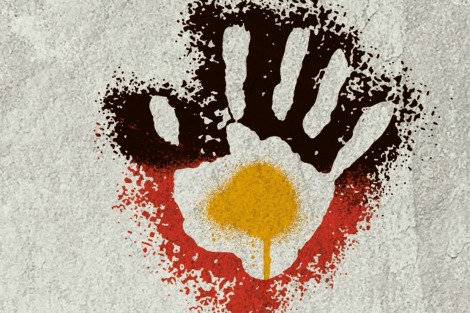
AUSTRALIA
- Frank Brennan
- 16 October 2015
2 Comments
I acknowledge those Aborigines and Torres Strait Islanders who insist that they have never ceded their sovereignty to the rest of us. I join with those Aborigines and Torres Strait Islanders who hope for better days when they are recognised in the Australian Constitution. As an advocate for modest constitutional recognition for Indigenous Australians, I respect those Aborigines and Torres Strait Islanders who question the utility of such recognition. But I do take heart from President Obama's line in his Charleston eulogy for the late Reverend Clementa C. Pinckney: 'Justice grows out of recognition'.
READ MORE
-

ARTS AND CULTURE
- Tim Kroenert
- 24 September 2015
Gulpilil measures the distance to Ramininging from Darwin by the number of river crossings, and defines its rough edges by the points at which traditional values clash with the imposed or inherited Western trappings. Through him we meet a man who found Christianity while in prison, and who now on Easter Sunday leads an epic reenactment of the Passion through the town's dirt streets. In the degradation of his trial and execution, says Gulpilil, Jesus is neither God nor leader; 'He is black. He is one of us.'
READ MORE 
-

- Frank Brennan
- 18 September 2015
Pope Francis's concerns are not narrowly dogmatic or pedagogical but universally pastoral. He knows that millions of people, including erstwhile Catholics, are now suspicious of or not helped by notions of tradition, authority, ritual and community when it comes to their own spiritual growth which is now more individual and eclectic. He wants to step beyond the Church's perceived lack of authenticity and its moral focus on individual matters, more often than not, sexual. He thinks the world is in a mess particularly with the state of the planet — climate change, loss of biodiversity and water shortages, but also with the oppression of the poor whose life basics are not assured by the operation of the free market, and with the clutter and violence of lives which are cheated the opportunity for interior peace. He is going to great pains to demystify his office. He wants all people of good will to emulate him and to be both joyful and troubled as they wrestle with the probl
READ MORE
-
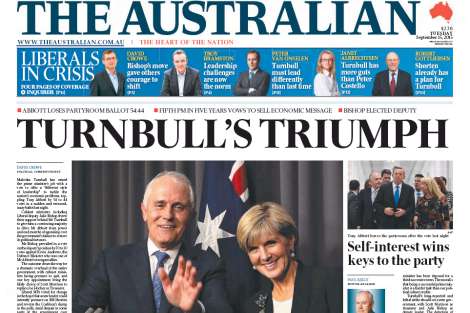
AUSTRALIA
- Tony Kevin
- 16 September 2015
14 Comments
Now is an exciting moment for Australia, after all the low points of the past two years. We can look forward to a real return to greater civil discourse and intellectual integrity in politics. It will be good if the parties can set aside the negative energy that was brought to the Parliament and return to an informed contest of ideas, for there is much to debate.
READ MORE 
-
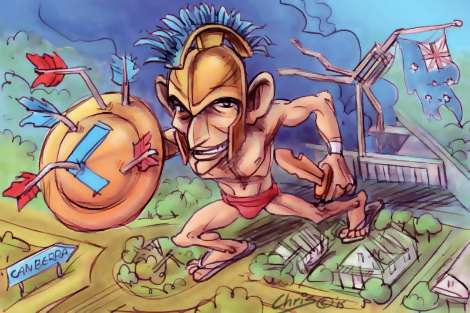
AUSTRALIA
- Andrew Thackrah
- 15 September 2015
24 Comments
After Malcolm Turnbull announced on Monday afternoon that he was challenging Tony Abbott for the LIberal leadership, commentators were unanimous in their speculation that Abbott would not give up the prime ministership without a fight. The pugnaciousness that characterised his political style was similarly part of the playbook of Canadian PM Stephen Harper, who was also seen to base his interaction with political adversaries on their 'standing' rather than debating policy. In Abbott's case this turned out to be a fatal flaw.
READ MORE 
-

AUSTRALIA
- Andrew Hamilton
- 03 September 2015
6 Comments
Last week the Reform Summit and the Australian Border Force's aborted Operation Fortitude were responses to the the perceived paralysis in Australian politics and public life. The Summit was a commendable initiative demonstrating that organisations with diverging agendas can talk together and reach consensus. It offered a chastening example to the political parties that currently emphasise their areas of disagreement and prefer to smash through — rather than think through — the obstacles to Australia’s prosperity.
READ MORE 
-
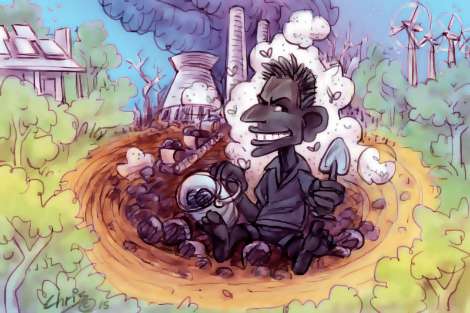
AUSTRALIA
- Fatima Measham
- 24 August 2015
10 Comments
The epithets used against environment groups have been extraordinary after a judge of the Federal Court set aside Environment Minister Greg Hunt's approval of the Adani thermal coal mine. Perhaps legislation has always been an instrument for ideological agendas, but the compulsion and ease with which the Coalition has taken to the law to restrict scrutiny doesn't bode well for us.
READ MORE 